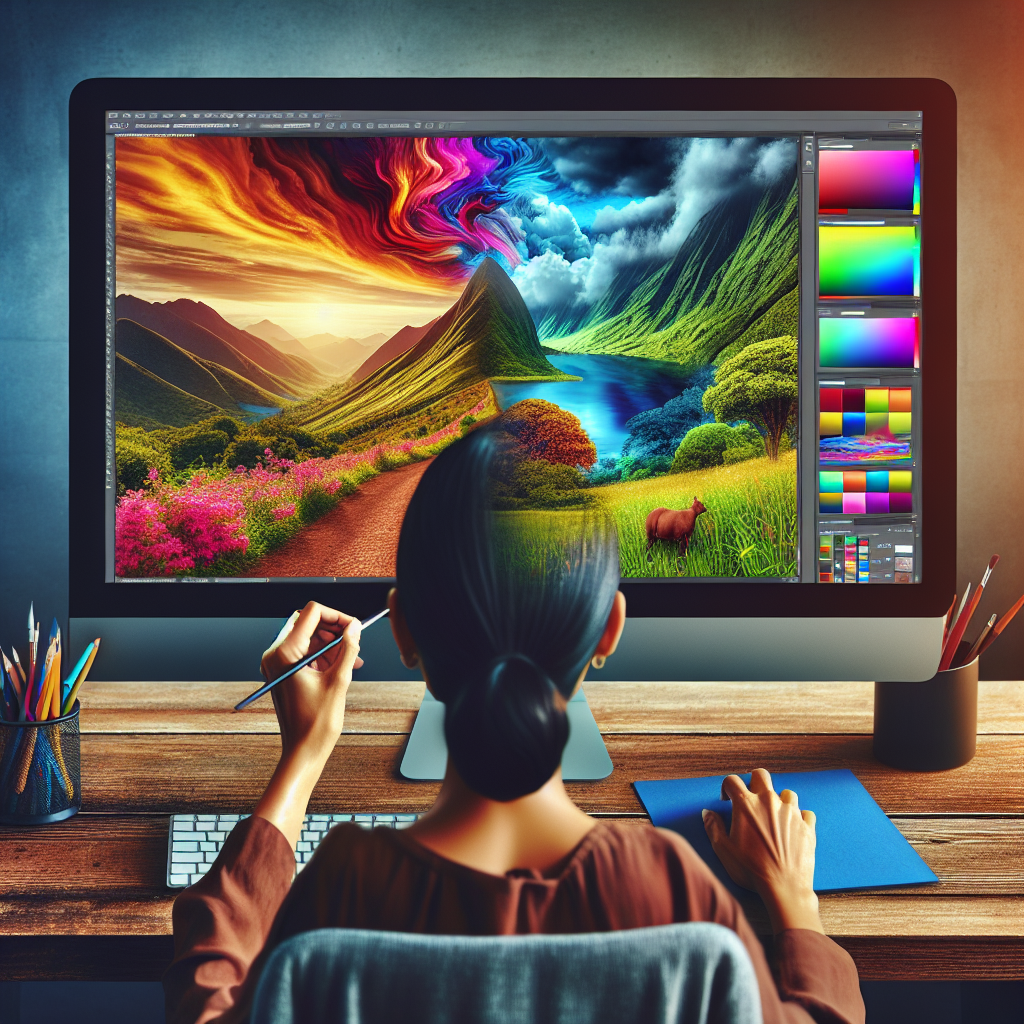Introduction
Manipulating photography has been a practice for as long as the art form has existed. However, with the advancement of technology and the advent of graphic design software, the approach to photo manipulation has been revolutionized. Nowadays, you don’t need a traditional darkroom; all you need is a computer and some graphic design software. It’s an art form that has gained popularity and is now a significant part of modern visual culture.
What is Photo Manipulation?
Photo manipulation encompasses everything from adjusting the contrast and brightness of an image to totally transforming an image into something surreal. It isn’t just about altering an image; it’s about creating a new reality with the tools available in the digital world. It’s about turning a simple photo into a storytelling device that alters perceptions and conveys ideas.
Understanding Graphic Design Software
There’s a wide range of graphic design software available on the market, each with its set of features and capabilities. Adobe Photoshop is arguably the most renowned photo manipulation software. Other popular options include Corel Paint Shop Pro, GIMP, and Serif PhotoPlus. These programs give users a wide array of tools for cropping, resizing, color correction, and much more.
Getting Started with Photo Manipulation
To master the art of photo manipulation, your first steps should be familiarizing yourself with your chosen software and its tools, as well as understanding the principles of design and composition. By blending these two skills, you’ll be better equipped to transform digital images into an artistic vision.
Transformative Tools
The first techniques any aspiring photo manipulator should master are cropping, resizing, and color correction. Cropping can help remove unwanted elements from a photo, resizing can help fit it into different formats, and color correction can alter the mood and atmosphere of an image. Other tools you will need to learn about are layering, masks, filters, and adjustment layers. These will come in handy when you want to make more complex alterations.
Advanced Techniques
As you gain more expertise, you can explore blending modes and manipulation of texture and light, which can help create a more surreal and artistic quality. Also, the incorporation of various elements into a single image, combining multiple images, and transforming the proportions or perspective of a photo are all advanced techniques in photo manipulation.
Practice and Experimentation
Photo manipulation is a field that requires continuous learning and practice. It’s also crucial not to be afraid of experimenting. Don’t be afraid to take risks with your artistry. It is through trial and error that you will find new and creative ways to express yourself.
Conclusion
Mastering photo manipulation using graphic design software is as much an art as it is a technical skill. It extends beyond merely altering an image; it’s about reshaping reality and telling a story through visual artistry. With the right tools, knowledge, and a willingness to experiment, you can master this dynamic and expressive art form.
Frequently Asked Questions
1. What software is best for photo manipulation?
Several software tools are suitable for photo manipulation, with Adobe Photoshop being one of the most well-known and widely used. However, other excellent options, often at a lower cost, include GIMP, Corel Paint Shop Pro, and Serif PhotoPlus.
2. I am new to graphic design software. Where should I start?
Many free online resources can help beginners. Youtube alone has numerous tutorials covering different software and techniques. It might be helpful to start with learning basic manipulations such as cropping and resizing images, color correction, and layering.
3. Is photo manipulation ethical?
It depends on the intent and context. In artistic and creative fields, photo manipulation is often seen as a form of expression. However, in journalism or documentation, it’s crucial to maintain the integrity and truth of the original image.
4. How much time does it take to master photo manipulation?
It varies greatly depending on individual ability, the complexity of the desired results, and how much time one can dedicate to learning and practicing. However, with regular practice, one could expect to become reasonably proficient within a few months.
5. Is expensive graphic design software worth the cost?
Although high-end software like Adobe Photoshop provides a vast array of tools and capabilities, other less expensive or free software also provide ample functionalities for excellent photo manipulation. It’s more about understanding the tool than the cost itself.

